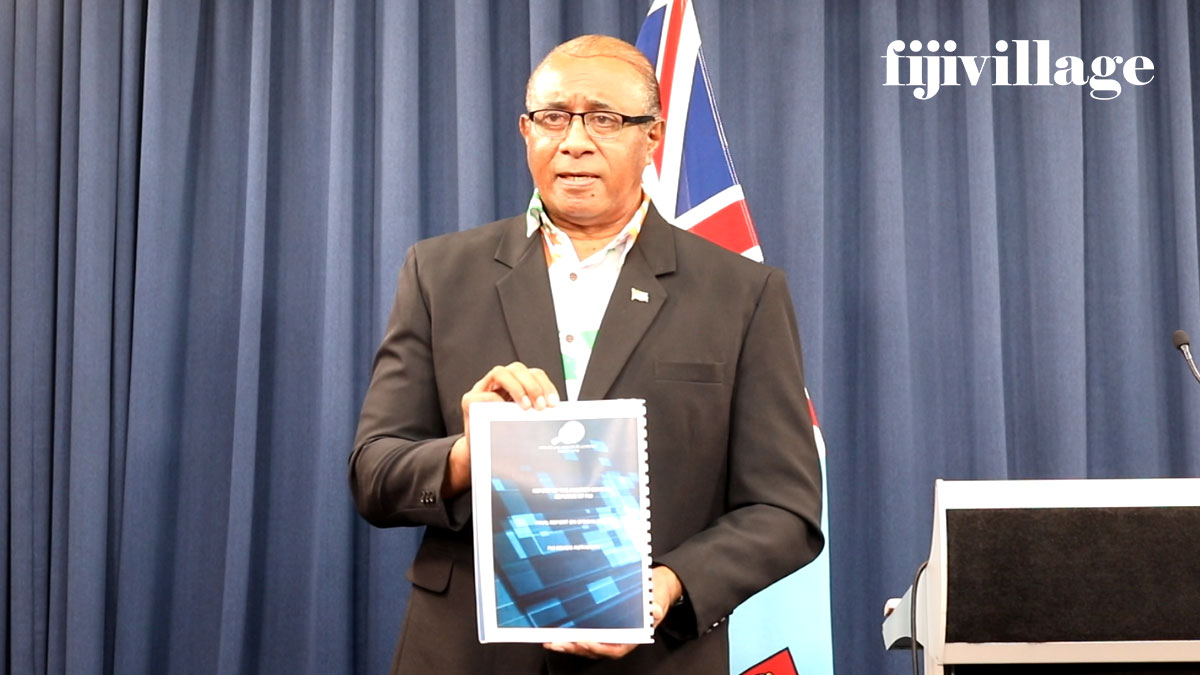
A special audit into the Fiji Roads Authority for three years from July 2020 to July 2023 has found that total cost variation and escalation of $405 million was largely facilitated and approved by the former Board via flying minutes while CEO Kamal Prasad who was earlier sent on leave pending investigation has been terminated.
This has been confirmed by Minister for Public Works Ro Filipe Tuisawau during a press conference this afternoon where he says the final audit report was received in December last year.
He says $405 million is a very significant amount and exceeded the annual capital budget approved for each of the three years.
The Minister says this amount is equivalent to 10 percent of the national budget and serious questions need to be asked whether proper processes, due diligence and approvals were undertaken before these amounts were paid out.
Ro Filipe says for example, original contract was $59.1 million and revised to $100.7 million and a cost over run of $41.5 million and for another project original contract was for $65.9 and revised to $118.4 million while another for another project $61.9 million was the original contract which was revised to $65.7 million.
He says preliminary and feasibility studies were not carried out and there were changes in project scope after tender was awarded while fresh tender was not called for significant changes to the scope.
Ro Filipe says under the maintenance program, there were inconsistencies noted in the application of cost escalation formulas applied by the Rip and Remake Contractors.
He says the Office of the Auditor General observes the FRA accepted these cost escalation claims made by contractors and facilitated payments without independent verification.
The Minister says retention fund owed to contractors were utilised by FRA due to its cash flow crises.
He says there was largely no allocation of specific budgets for emergency works arising out of natural disasters.
Ro Filipe says the auditors also noted that a significant number of key management and middle management positions remained vacant, which were critical to the functions of the FRA during this period.
He says the new FRA Board was appointed in April last year who immediately identified systems and governance breakdowns and a huge cash flow crisis that was crippling FRA.
Ro Filipe says FRA had fully utilised its 2022/2023 capital budget allocation within 5 months by December 31st last year without any capital expenditure funds for the remaining 7 months up until July 2023.
He says the Board had literally no capital funds to operate since its appointment which was worsened by huge FRA arrears owed to its contractors.
Ro Filipe further says the auditors have provided nine key recommendations and the Board will be engaging a consultant to incorporate that into its operational and strategic plan in order to reform the organisation for more efficient and effective delivery of its service.
He says there is a need for stringent processes, especially for project planning, feasibility planning, design and engineering, contract management processes have to be re-looked at and key stakeholders, particularly public utilities need to be involved.
Ro Filipe says the management of variation in project scope is a critical part of project management and the Authority should develop a step-by-step guide to manage changes to project scope.
He says variation in cost escalation must be approved by the Board and not via flying minutes and they also must ensure that the Board has the capacity which includes financial and technical and engineering capacity to assess what it submitted to it.
The Minister says the Office of the Auditor General also recommends strengthening of internal audits and compliance which is vital in project management.
He says they also recommend that the FRA should work with its line Ministry to ensure that they are working within their budget and fill critical posts which is a challenge Fiji is facing.
He adds due to the seriousness of the findings and for transparency, good governance and most importantly accountability for public funds, he has decided to refer the report to the Board and or relevant authorities for a forensic and detailed investigation.
He says referring the report to the Police or FICAC is part of the options they have which they will convey to the Board and is the next step the Board will most likely take.
Stay tuned for the latest news on our radio stations


